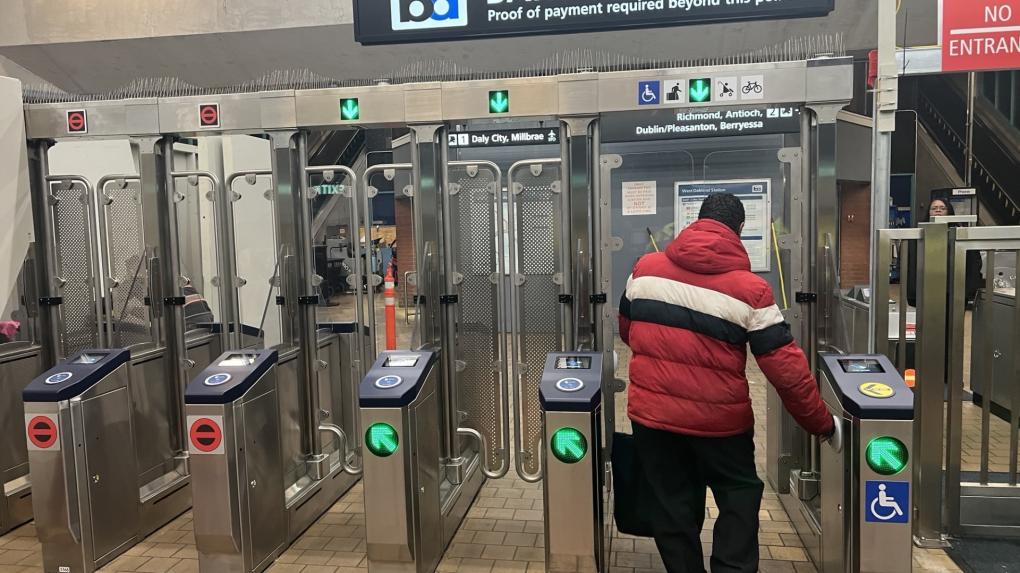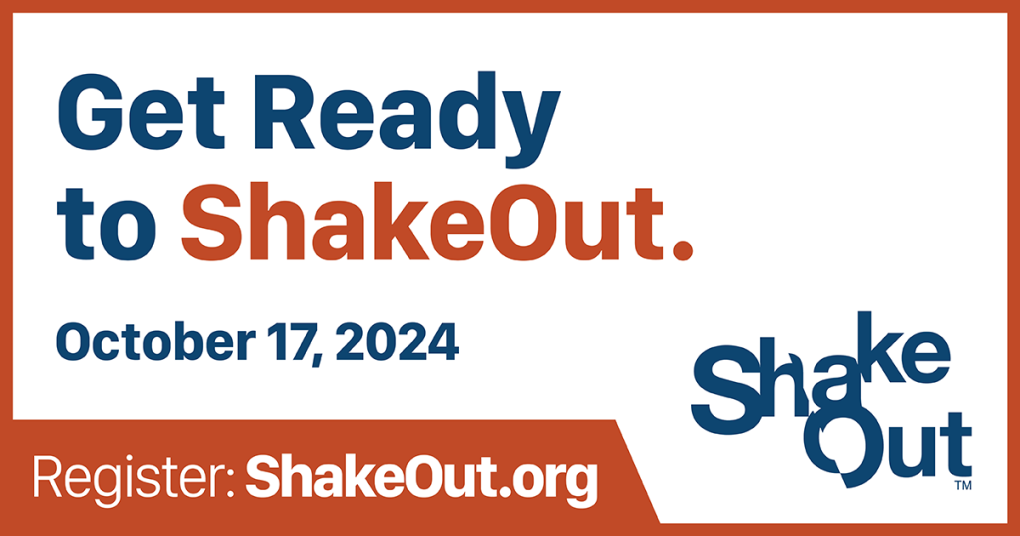Search Results
BART to stop selling all discounted magnetic tickets on December 31, 2021
As part of BART’s transition to offer Clipper as the only fare product available for purchase, BART will stop selling all discounted magnetic stripe tickets starting December 31, 2021, while helping riders transition to the discounted Clipper option. While BART stopped selling tickets from station vending
BART adds more Airport/Long Term parking spaces for holiday period
BART has nearly doubled the number of Airport/Long Term parking spaces available during the Christmas travel season. The additional Airport/Long Term spaces will be available from Friday, December 19, 2008 through Sunday, January 4, 2009. BART is urging the public to purchase their parking permits early as
Google.org funds 20K free BART rides for youth field trips
In partnership with the local non-profit, The Youth Transportation Organization (“Yoots”), BART is working to launch a special Free BART Rides for School Field Trips program that will provide local students, teachers, and chaperones the opportunity to take transit to BARTable field trip destinations. Google
BART unveils new fare gates at West Oakland Station

As part of its Safe and Clean Plan, on December 28, 2023, BART unveiled prototypes of its new fare gates at the West Oakland Station. The system is upgrading its fare gates for the first time in 20 years. BART has committed to opening 700+ new fare gates systemwide by the end of 2025.
Watch the time lapse video.
Mechanical Door Lock to be Installed Soon
These are not the final version of the fare gates that will be installed throughout the rest of the system. The development team will be installing the latest door-braking technology in the coming weeks. This mechanical door lock will be exclusive to BART. No other transit system in the world has it. Once installed, these gates will be harder to push through than any other fare gate in the world.
The prototypes now installed at West Oakland will test the new gates in a station environment with riders. Initial field testing will primarily focus on door material options.
BART will announce the next eight stations to get the new fare gates at the January 11, 2024, board meeting.
“As a transportation system, we take tremendous pride in saying our riders are what runs BART," said BART General Manager Bob Powers. "Among the world’s transit agencies, BART relies the most on rider fares; they are directly responsible for funding our operations. These new, state-of-the-art fare gates will protect against fare evasion, expand access to transit-dependent riders, and reduce system downtime due to maintenance, which helps boost investment in BART’s long-term growth.”
“We welcome the new fare gates starting at West Oakland and its future expansion to other stations," said BART Police Chief Kevin Franklin. "These stronger, higher gates will limit fare evasions through self-enforced fare payments, keep riders safe and engaged to return to BART, and have police officers focused on more serious situations that require emergency services.”
While BART is rolling out new fare gates to boost safety and reduce fare evasion, the agency is also working to increase access to BART by more than doubling the discount for low-income individuals from 20% to 50% beginning January 1, 2024.
BART’s Safe and Clean Plan focuses on attracting riders to return to the system by reimagining the BART experience. BART is making dramatic improvements, from new payment systems to infrastructure renovations. It's all being done to guarantee customers a clean, safer ride and ensure BART is the safest way to travel around the Bay.
Night Board meeting to cover e-cigarette ban, role of art at BART
The BART Board of Directors will meet Thursday, Jan. 22 at 5 pm to consider a range of topics including a newly proposed ordinance to restrict smoking of e-cigarettes / vaping devices as well as a presentation on the role of public art in existing and future BART facilities. The meeting will be held in the
TSA and BART Police conduct joint training exercise Friday, April 18
From 8:30am to 12:30pm on Friday, April 18, BART Police, the Transportation Security Administration (TSA), and Bay Area law enforcement will be working with other local transit agencies to conduct joint security training exercises at the SFO, Embarcadero, West Oakland, and Coliseum BART stations. The purpose
With more seat labs scheduled, BART begins analyzing feedback on Fleet of Future
Seat lab at SFSU on May 11 The calendar is being set for all of BART's mobile seat labs, where riders are giving feedback on what they'd like to see in the Fleet of the Future. The seat labs are just one of many ways BART is gathering public input on the project to replace its entire fleet of train cars, the
October 17: BART participates in Great California ShakeOut 2024

BART will participate in the 2024 International ShakeOut Day earthquake drill on Thursday, October 17, to test our emergency response systems and to help raise public awareness of the importance of having a plan and being prepared.
At 10:17am, BART staff will trigger our ShakeAlert early warning earthquake system to ensure it is functioning and working correctly. Once triggered, trains will automatically slow down to 27 mph. Then all trains will come to a very brief stop. BART will also make a systemwide public announcement encouraging riders to be prepared for earthquakes. BART will also test our internal communications systems to notify employees and the Operations Control Center will observe earthquake alarms and our train control systems to ensure they are working properly.
ShakeAlert Early Warning Earthquake System
BART is an early adopter of the ShakeAlert system, which is connected to seismic stations located throughout Northern California. When the alarm is triggered, the system sends a speed restriction command to trains. This system removes human response time and can even slow trains down before the shaking occurs depending on how far away the quake is centered.
BART to Simulate Damage Inspections
BART has added simulated damage inspections to its ShakeAlert drill. Shortly after ShakeAlert is triggered Thursday, about 60 engineers will divide into teams and fan out to all 50 stations to conduct structural assessments. The engineers will inspect walkways, support structures, elevators, escalators – anything that could sustain damage in a powerful earthquake. The simulation is designed to identify areas for improvement and to exercise “muscle memory” for BART’s earthquake response.
Emergency Response Plan
BART has an Earthquake Emergency Response Plan, and we hold several drills a year to ensure staff is trained and ready to respond. In the event of an earthquake, riders should listen for instructions from BART personnel. Employees are trained to evacuate the public from dangerous areas. Following an earthquake, BART trains are held in place (except for trains in the Transbay Tube and BART Caldecott Tunnel) until it is determined it is safe to move the train to the nearest station where riders will be offboarded.
Earthquake Safety Tips
Where will you be and what will you do when the next big earthquake hits? Taking time to consider these questions now could help if you ever do find yourself in an earthquake.
LISTEN FOR INSTRUCTIONS
That’s one reason why the first guideline in a BART emergency is to follow instructions from BART personnel. The BART Operations Control Center is in constant communication with trains and Station Agents and is in the best position to manage emergencies and provide direction for the public.
ON A TRAIN
If you’re on a train during an earthquake, Train Operators will follow BART’s established emergency plan and provide you with important information. Sit down or grab a handhold to avoid injury. If an evacuation is necessary, emergency response personnel will coordinate.
IN A STATION
If you’re in a station during an earthquake, back away from the edge of the trackway. If you’re in the station concourse, don’t proceed to the platform. Instead, prepare to evacuate the station under the direction of BART personnel.
TRY TEXTING
No matter where you are, emergency experts recommend using text messaging instead of cell calls to communicate with family and loved ones in an emergency. Cell networks can be overwhelmed if everyone’s trying to call at the same time; text messages can be more efficient.
Earthquake Safety Program Completed in 2024
In September 2024, BART completed its Earthquake Safety Program, which retrofitted vulnerable high traffic portions of the original system to make it safer in a large quake. The Earthquake Safety Program was funded in part by Measure AA, a $980 million general obligation BART bond approved by voters in 2004. The program focused on upgrading portions of the original system not only for life safety but also to ensure that we can return to operation shortly after a major earthquake.
Visit Shakeout.org for simple safety steps during earthquakes.
BART riders notice extra security after death of Osama bin Laden
Critical Asset Patrol officers at press conference BART riders will notice extra security today and in the future, as the transit system steps up police presence following the death of al-Qaida leader Osama bin Laden. While there has been no specific threat, BART is taking a number of steps to increase